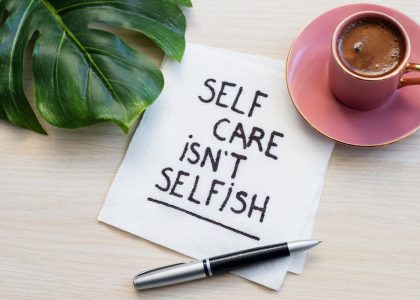The causes of sleep deprivation vary from high stress and a demanding work schedule to medical and environmental conditions. No matter the cause of insomnia, the negative effects add up over time, affecting most of the body’s major systems. The results increase the risk of obesity, diabetes, hypertension, and mental health issues. However, sleep outcomes can be improved by developing recognizable patterns of behavior that support the body’s circadian rhythms.
The Brain: A Slow Down
While the mind may be unconscious, the brain doesn’t shut down during sleep. The glymphatic system activates during the sleep cycle, running at a 90 percent higher capacity during the night than it does during the day. It acts as the brain’s cleansing mechanism. When it’s active, brain cells shrink, creating larger interstitial spaces between the cells through which spinal fluid can flush and move throughout the brain. The fluid cleanses the brain of biotoxins made up of amino acids and proteins.
With age, the glymphatic system slows down, becoming less efficient in its cleansing task. The consequent waste build-up has been theorized to contribute to the slowed brain functioning found in dementia and other neurological diseases.
Emotional Impact
Cleansing isn’t the only effect that sleep has on the brain. Emotional stability and regulation rely on sleep too. The amygdala, a small part of the brain that processes emotions, becomes hypersensitive to negative stimulation such as situations that stir sadness, anger, or irritation. Even small changes in schedule or minor irritations can cause emotional surges during sleep deprivation.
Sleep deprivation also affects the brain’s logic center, called the prefrontal cortex. This portion of the brain applies logic, reasoning, and higher executive functions to the amygdala’s emotional processing. However, lack of sleep causes it to reduce its activity, leaving the amygdala to run unchecked. Increased aggression, anxiety, depression, and irritability often accompany sleep deprivation because of these changes.
Changing Hormones: Appetite, Metabolism, and Food Cravings
Sleep also serves as an appetite regulator. Without enough of it, the body releases increased amounts of hunger hormone followed by a decrease in satiety hormone. Even if the body doesn’t require the extra calories, it feels like it needs more food.
While hunger intensifies, the brain’s reward center also changes. It gets a bigger “hit” from unhealthy foods packed with sugar and fat. In one study, sleep-deprived participants chose snack foods with 50 percent more calories and two times the fat versus when they’d gotten a full eight hours of sleep. Long-term, these changes alone increase the chances of obesity, hypertension, and diabetes.
Immune System Strength
Sleep and the immune system have an interesting relationship. Immune system health can alter the timing of the sleep cycle, yet alterations in the sleep cycle can dampen the immune system. During a normal, healthy sleep cycle, the body’s T-cells congregate in the lymph nodes where they prepare for their daytime duties of protecting and fighting off infection.
Sleep also plays a role in the “immunological memory” in that the body increases the number of antigen-specific cells and antibodies during sleep. The immune system also activates during slow wave sleep to reduce inflammation and levels of the stress hormone cortisol, which means that injuries can take longer to heal.
Sleep Habits that Count
Everyone occasionally experiences poor sleep. The dangers come when it becomes chronic. However, the success of the sleep cycle can be enhanced with better habits and a bedroom environment designed for the body’s sleep needs.
- Bedroom and bed comfort: The body needs specific environmental conditions to relax and fall asleep. For example, body temperature drops, which can be supported with a cooler room temperature between 60 to 68 degrees. The mattress should conform to and support the sleeper’s preferred position, and the pillow should act as a secondary spinal support.
- Consistency at bedtime: A consistent bedtime allows the brain to predict behavior and anticipate the release of sleep hormones.
- Prepare with a bedtime routine: The brain also needs to transition from active and awake to tired and sleepy. A bedtime routine is an active trigger that signals the start of the sleep cycle. When activities are started at the same time and performed in the same order every day, the brain automatically starts the release of sleep hormones in response.
- Avoid stimulants and screens: Two big detractors from a successful sleep cycle are stimulants like caffeine and the light from electronic screens. Caffeine can flow through the body for hours, blocking sleep hormones as it goes. Stop consumption at least four hours before bed. Blue spectrum light from electronics like laptops and televisions gets absorbed by special photoreceptors in the eyes, which send signals to the circadian region of the brain and suppress sleep hormones. Turn off the screens two to three hours before bed to prevent a delay in the sleep cycle.
Conclusion
The effects of sleep deprivation reach into almost every part of the body. However, with the right habits, you can improve your health by giving your body the rest it needs.
Article: Sleep Help Institute
Image: Nathan Cowley






